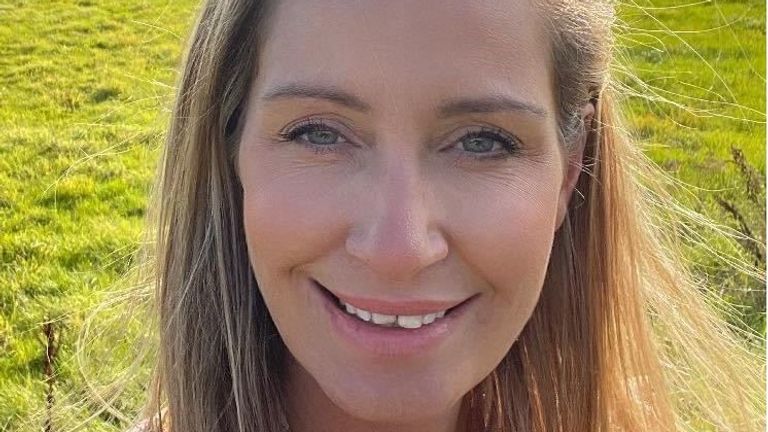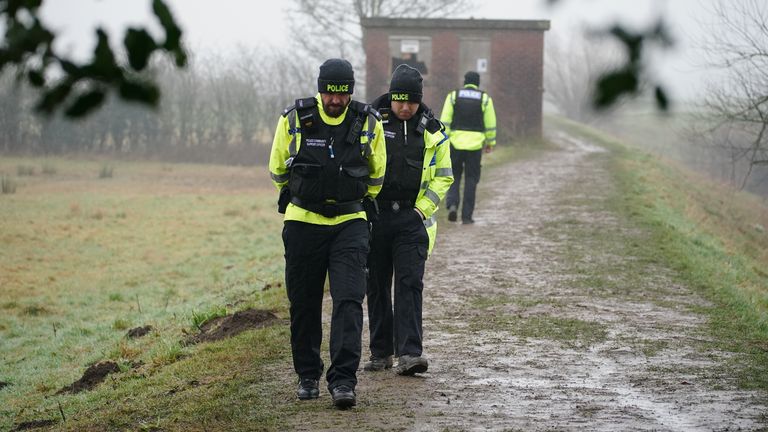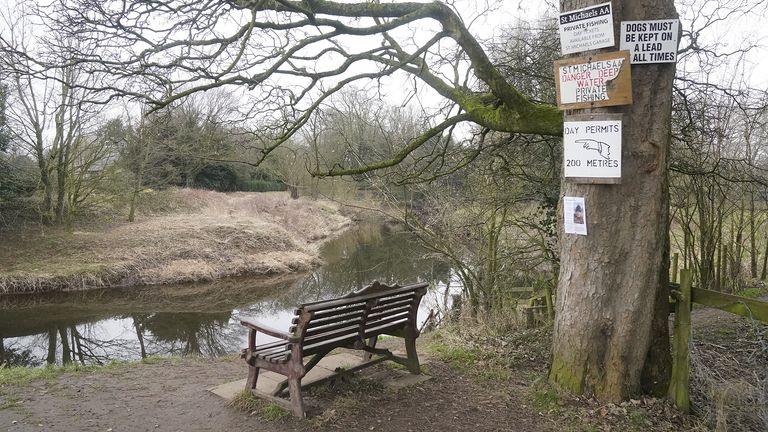
There is no evidence Nicola Bulley was harmed before she drowned in the River Wyre, a Home Office pathologist has said.
Dr Alison Armour, giving evidence at an inquest at County Hall in Preston on Monday, said watery fluid and fragments of dirt found inside Ms Bulley’s body were “typical features we see in cases of drowning”.
She added that Ms Bulley was alive when she fell into the water and had not been drinking before her death.
Meanwhile, an expert said the temperature of the River Wyre was around 3C-5C and it would have taken “one or two breaths” in of water to kill Ms Bulley.
“We estimate the temperature would have been around 3 to 5C (in the River Wyre), so there would be a particularly powerful cold-shock response,” Professor Michael Tipton said.
“For somebody of Nicola’s size, it would have taken one or two breaths in of water to be a lethal dose.”
The inquest heard there would have been a “fairly rapid incapacitation” and an estimated “20 to 30 seconds” before she lost consciousness.
Another cold water expert, Dr Patrick Morgan, said Ms Bulley may have only been able to hold her breath for “one or two seconds at best” in the river.
The 45-year-old mortgage adviser from Inskip vanished while she was walking her dog after she had dropped her two daughters off at school in St Michael’s on Wyre, Lancashire, on the morning of 27 January.
She was immediately deemed a “high risk” missing person and her disappearance sparked an intensive search operation – including private underwater search specialists – before her body was eventually found more than three weeks later in the River Wyre.
There was some bruising to Ms Bulley’s body but these did not contribute to her death, the inquest was told.
Dr James Adeley, senior coroner for Lancashire, asked Dr Armour: “Is there any evidence of third-party involvement playing any part in her death?”
Ms Armour replied: “No, there was not.”
She said there was no bleeding in the brain or natural diseases, only normal therapeutic levels of medication in her body and the low level of alcohol was consistent with this being the result of the natural process of decomposition of her body.
Ms Bulley’s partner Paul Ansell, her sister Louise Cunningham and parents, Ernest and Dot Bulley, were in court for the proceedings.
Dr Adeley said extra security has been put in place by police and the county council due to the social media interest in the case – and warned those in attendance not to disrupt proceedings following “unusual online commentary” about Ms Bulley’s death.
The coroner added: “At the centre of this inquest are two children who have lost their mother, a partner, and parents who have lost a daughter.”
He warned if anyone had the “slightest idea” to disrupt the hearing they would be dealt with “immediately”.
A video of police underwater search specialist PC Matthew Thackray, in St Michael’s on Wyre, was shown to the court, in which he said he believed Ms Bulley fell into the river before floating downstream.
“There is a large vertical slope from the bench and into the water. On the day there was a steady flow downstream,” he said.
The river was “almost freezing”, he said, adding: “If she fell in the muscles would probably seize making it difficult to swim properly.”
He estimated she would have floated at a “metre a second” downstream.
Both police and media faced criticism after her body was found in the river around a mile downstream from the bench, on 19 February.
Amid speculation over Ms Bulley’s disappearance, Lancashire Police revealed she had struggled with alcohol and perimenopause, prompting widespread criticism over the decision to disclose her personal information.
Last month, the Information Commissioner’s Office (ICO) announced it would not take any enforcement action against the force over its disclosure of her personal information.
Meanwhile, the Independent Office for Police Conduct (IOPC) cleared the Lancashire force of any wrongdoing but said it had identified two “areas of learning” over an officer’s contact with Ms Bulley prior to her disappearance.
The inquest is expected to last two days.














